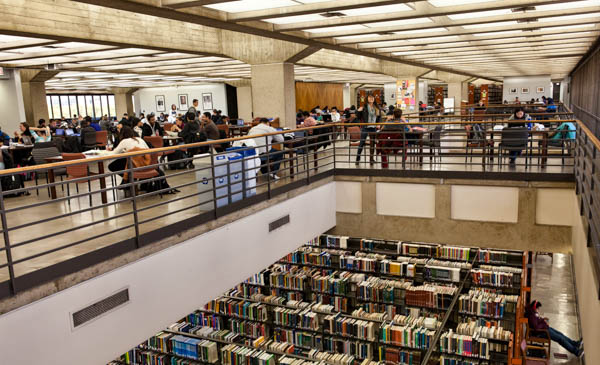Let’s Talk About Research
What is research?

Research can be defined as a systematic process of collecting, organizing, and analyzing data used to fill gaps in our knowledge and build our understanding of topics of study.
What distinguishes research from other acts of information gathering is that it is systematic, which means the research follows a set of interrelated steps or process that is guided by principles or theory. And these principles or theories generally stem from a specific field of study.
The research process is important because it helps ensure the research and the knowledge that is learned through the study is both reliable and objective.
Below is an overview of what the steps may look like in one example of a research study, though it is important to note that the order of the steps and some of the steps themselves may vary depending on the kind of research being conducted.
What is undergraduate research?

According to the Council on Undergraduate Research and our friends at the Office for Undergraduate Research, undergraduate research is a mentored experience where students work with faculty to investigate or explore creative questions and projects that make scholarly contributions to knowledge.
Undergraduates can work with faculty in two different research environments described below. Each pathway enables students to develop their research toolkits and scholarly identities while gaining skills and competencies that foster academic, social, and professional growth.
- Research assistantships: Students can join an existing research project as research assistants and support the professor(s) or Principal Investigators (PIs) overseeing the study with different parts of the study (examples: participant recruitment, data or evidence collection, literature reviews, or data analysis). In this role, students are part of a research team and follow a faculty mentor who serves as their captain. Starting as a research assistant helps students learn about the research process and build their research toolkits as they work on specific parts of a study while still benefiting from involvement in and observation of the entire project. They also boost their learning from their teams’ input and faculty mentors’ guidance.
- Independent research: Students can design, develop, and conduct independent research projects under the guidance of faculty mentors. Students are involved in all research project steps, from start to finish. In this role, students work closely with a faculty mentor and act as a co-captain. When students participate in the project design and various steps, they are involved in all aspects of the research study. As students generate ideas for independent projects and connect with professors, they may want to consider applying to programs that allow them to bring their studies to life.
LAS research examples
Sources
View the list of sources used to develop this resource.